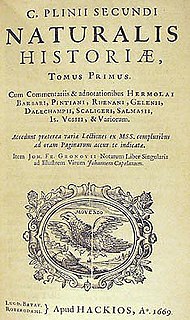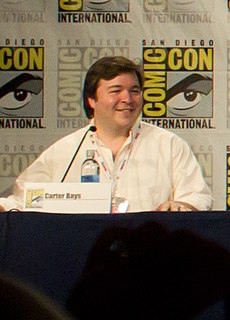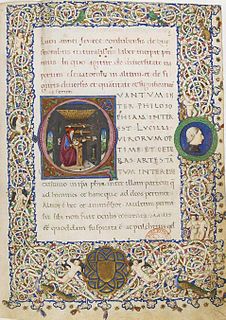| Look up natural history in Wiktionary, the free dictionary. |
Natural history is the scientific study of plants or animals.
Contents
Natural History may also refer to:
| Look up natural history in Wiktionary, the free dictionary. |
Natural history is the scientific study of plants or animals.
Natural History may also refer to:
Pliny may refer to:

Gaius Plinius Secundus, called Pliny the Elder, was a Roman author, naturalist and natural philosopher, and naval and army commander of the early Roman Empire, and a friend of the emperor Vespasian. He wrote the encyclopedic Naturalis Historia, which became an editorial model for encyclopedias. He spent most of his spare time studying, writing, and investigating natural and geographic phenomena in the field.
Plague or The Plague may refer to:

The Natural History is a work by Pliny the Elder. The largest single work to have survived from the Roman Empire to the modern day, the Natural History compiles information gleaned from other ancient authors. Despite the work's title, its subject area is not limited to what is today understood by natural history; Pliny himself defines his scope as "the natural world, or life". It is encyclopedic in scope, but its structure is not like that of a modern encyclopedia. It is the only work by Pliny to have survived, and the last that he published. He published the first 10 books in AD 77, but had not made a final revision of the remainder at the time of his death during the AD 79 eruption of Vesuvius. The rest was published posthumously by Pliny's nephew, Pliny the Younger.

A table of contents, usually headed simply Contents and abbreviated informally as TOC, is a list, usually found on a page before the start of a written work, of its chapter or section titles or brief descriptions with their commencing page numbers.
Seventeen or 17 may refer to:
Diving most often refers to:
A mirror is an object whose surface reflects an image.
Letter, letters, or literature may refer to:
Stuff, stuffed, and stuffing may refer to:
Sunrise is the instant at which the upper edge of the Sun appears above the horizon in the east.
History is the study of the past.
Mirror Mirror may refer to:
Naturalis historia may refer to:
A lighthouse is a tower aiding marine navigation.
Historia Naturalis may refer to:

Carter Loard Bays is an American author, composer and television showrunner.
A weekend is the part of the week that is traditionally devoted to rest, rather than work.

Naturales quaestiones is a Latin work of natural philosophy written by Seneca around 65 AD. It is not a systematic encyclopedia like the Naturalis Historia of Pliny the Elder, though with Pliny's work it represents one of the few Roman works dedicated to investigating the natural world. Seneca's investigation takes place mainly through the consideration of the views of other thinkers, both Greek and Roman, though it is not without original thought. One of the most unusual features of the work is Seneca's articulation of the natural philosophy with moralising episodes that seem to have little to do with the investigation. Much of the recent scholarship on the Naturales Quaestiones has been dedicated to explaining this feature of the work. It is often suggested that the purpose of this combination of ethics and philosophical 'physics' is to demonstrate the close connection between these two parts of philosophy, in line with the thought of Stoicism.

Historia Naturalis Brasiliae, originally written in Latin, is the first scientific work on the natural history of Brazil, written by Dutch naturalist Willem Piso and containing research done by the German scientist Georg Marcgraf, published in 1648. The work includes observations made by the German naturalist H. Gralitzio, in addition to humanist Johannes de Laet. It was dedicated to Johan Maurits, Count of Nassau, who was the patron of the project during the period of Dutch rule in Brazil.